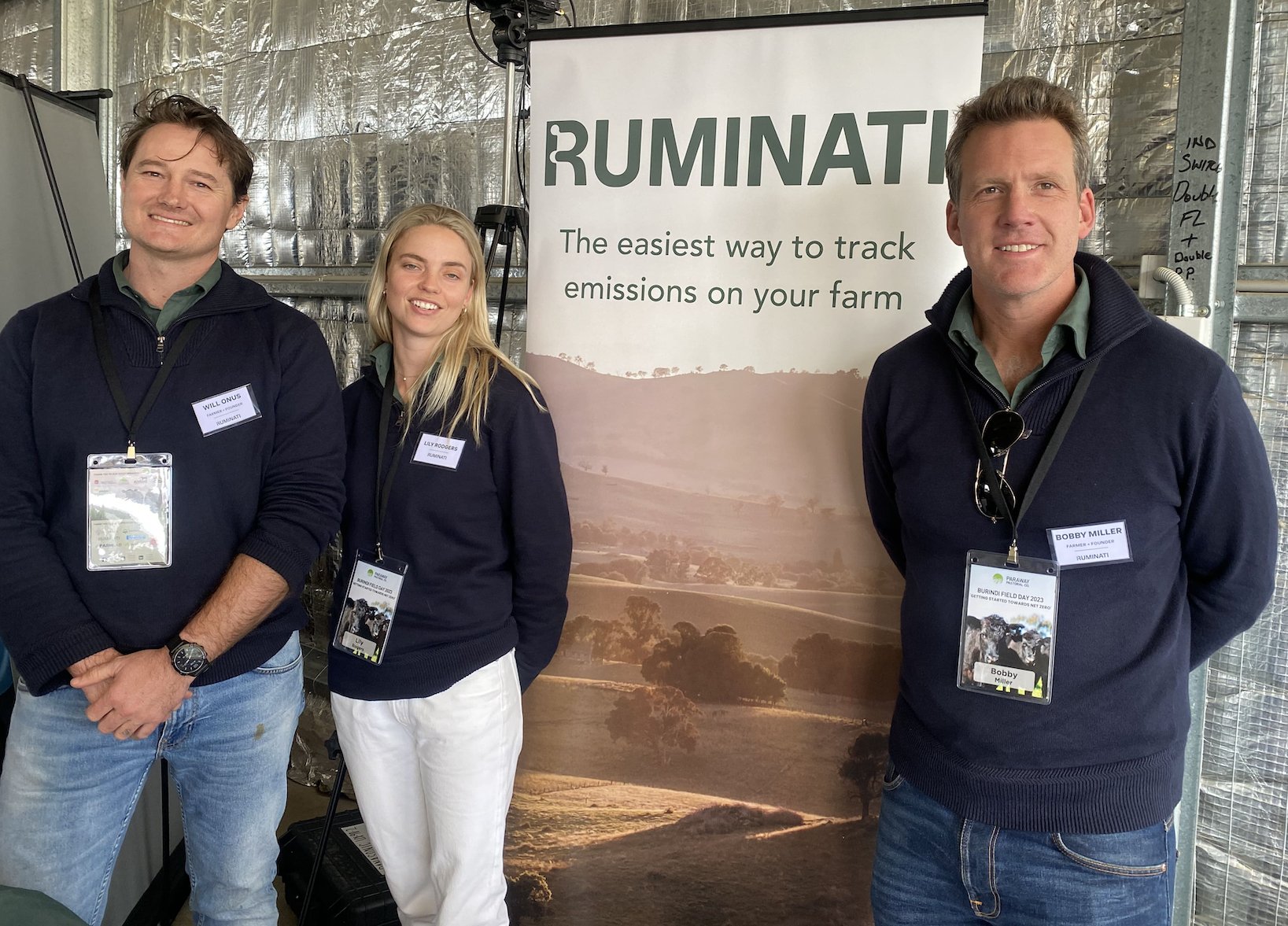A 50-farm pilot program to baseline emissions of Commonwealth Bank agribusiness customers has been labelled a success by the bank's General Manager of Agribusiness, Natasha Greenwood.
The program, which onboarded customers from Roma to Tasmania onto the Ruminati platform, has given the bank an early indication of farmer appetite for starting the emissions-accounting journey.
Of the 50 farms who entered the trial:
86% had never completed an emissions report before;
Three-quarters said they joined because they wanted to learn about baselining emissions and understand more about sustainable farming practices; and,
30% joined the program because the supply chain had been talking to them about carbon measurement.
The program was oversubscribed by Commbank customers and Ms Greenwood said it demonstrated there had been a shift in farmer sentiment from confusion to curiosity to intent.
Ultimately that would lead to action, she said, and the bank wanted to put tools in the hands of farmers as soon as possible to achieve that.
"We want to put something in front of producers that enables them to measure their emissions, but importantly, then model abatement options, because that's where the opportunity is," she said.
"Once they can model those abatement options, and they can decide which action they might take, and we're right there to support them to optimise the opportunities that transition is going to bring."

Ruminati founders Will Onus (L) and Bobby Miller (R) with Lily Rogers (middle)
Ruminati co-founder Bobby Miller, himself a cattle and sheep farmer from Coolac, said the program had worked with a range of farmers between between their 20s and 70s, with a lot of husband and wife teams.
He said it was pleasing that most farmers were much more invested beyond getting a baseline number, and wanted to use the platform to go deeper into abatement practices.
"Participants genuinely went away with a better understanding of their farm's emissions thinking proactively about what else they can do. There was a lot more follow on discussion about 'this project and that project and I saw my neighbour do that'," he said.
Speaking at the Commonwealth Bank's Momentum conference in Sydney, Mark Gubbins of Coolana Angus in Victoria's Western Districts said the pilot program had allowed them to proactively engage with a process that is "somewhat quite frightening".
"We, as a family, look ahead five, 10, 20 years and if you look at what's going on in the world with carbon, we didn't stick our head in the sand," Mr Gubbins said.
"When you turn back three or four years we'd probably say 'we're gonna sell carbon here and carbon there and make a fortune'. That's called offsetting (but) we're into insetting, we want to keep what we've got but we didn't know where to start.
"Now there is a baseline. We've got a start and we've got something we can work with."
What was most pleasing to the pilot participants and organisers was the ability to forecast potential emissions reductions using Ruminati's reduction planner.
Mr Gubbins had looked into tree plantings and turn-off rates and was talking to his lick provider about adding asparagopsis.
"The two most popular abatement options that were modelled by customers on the pilot were pasture management and tree plantings," Ms Greenwood said.
"That gives us an excellent opportunity to talk with producers about if that's the option that they're modelling, what might they do with that?
"Again, shifting this conversation forward, from curiosity to intent to action, and how do we actually support you through that journey?"
Subscribe to our weekly newsletter and monthly cattle, sheep, and machinery round-ups.